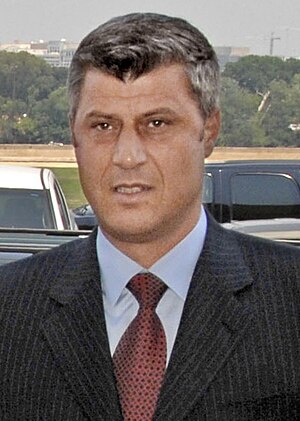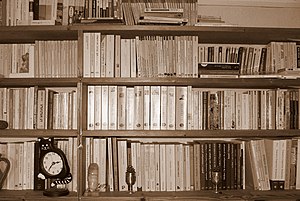 Image via Wikipedia//Mikhail Khodorkovsky
Image via Wikipedia//Mikhail Khodorkovsky
Will the Russian oil tycoon Mikhail Khodorkovsky and his partner, Platon Lebedev spend another 14 years in prison? They have been accused, according to a verdict announced today, of stealing some $25bn (£16bn) worth of oil - or practically all the oil that their company, Yukos, produced between 1998-2000, and all the oil it exported between 2000-03, and then laundering the proceeds. Both of them already spent seven years behind bars. The independent observers are considering the sentence as a protection took by the current duo from Kremlin Medvedev and Putin, for keeping their power for another mandate. The next presidential elections are expected in 2012.
Khodorkovsky’s lawyers announced that he will appeal the verdict.
The decision was not a surprise, and Vladimir Putin spoke in a recent interview in support of a lengthy prison sentence. He reaffirmed that Khodorkovsky is a proven criminal and "should sit in jail", a statement denounced by critics as interference in the trial. In a country as Russia, where justice and judges are so fragile, such statements were translated as a hint for the decision expected in the court. And, of course, Putin is not alone in his “good wishes” for the oil tycoon.
"I am ready to die in jail," Khodorkovsjy said in his last word to the court in November, while strongly reiterating his innocence. “No one believes an innocent verdict in the Yukos case is possible in a Moscow court,” he said on another occasion. Today, during the lecture of his verdict, he was reading a book.
How will affect this decision the public opinion ? Only 13% of those polled in September by Levada Center said they believed the charges, down from 29% in February. (Roughly twice as many, 24%, said they did not believe the charges.) There were protests today, held against the decision, but the probability to turn this case into an Achilles’ heel for the current power is not likely to occur. But, once free, Khodorkovsky might represent a powerful brand for a fragile and incoherent sometimes opposition and Russian voices on Twitter indicated him as the possible next president. With the condition to let him free! In May 2010, former primer minister and current opposition leader Kasyanov said the new charges against Khodorkovsky were ludicrous and politically motivated. He said that Putin, while president, had been angered by Khodorkovsky's financial support for the Communist Party, liberal Yabloko and the Union of Right Forces. From prison, he is having a very active intellectual life and continue to be present for the Russian public opinion. The political transformation of Khodorkovsky is cited in many of his writings from prison. On Oct. 26, 2009, published a response to Dmitri Medvedev's "Forward, Russia!" article in Vedomosti, arguing that "authoritarianism in its current Russian form does not meet many key humanitarian requirements customary for any country that wishes to consider itself modern and European."
On 28 January 2010, Khodorkovsky authored an opinion article in the New York Times and International Herald Tribune, which argued that "Russia must make a historic choice. Either we turn back from the dead end toward which we have been heading in recent years — and we do it soon — or else we continue in this direction and Russia in its current form simply ceases to exist."
On 3 March 2010, he wrote an article in Nezavisimaya Gazeta about the "conveyor belt" of Russian justice. In this article, he warns that "siloviki conveyor belt, which has undermined justice is truly the gravedigger of modern Russian statehood. Because it turns many thousands of the country's most active, sensible and independent citizens against this statehood - with enviable regularity."
Who is the most wanted man?
Khodorkovsky, born in 1963 with a Jewish father and a non-Jewish mother, grew up in an ordinary Soviet family in a two-room apartment in Moscow. He became deputy head of Komsomol (the Communist Youth League) at his university, the Mendeleev Moscow Institute of Chemistry and Technology, where he graduated in chemical engineering in 1986, getting into the ranks of communist apparatchiks.
After perestroika started, Khodorkovsky used his connections within the communist structures to gain a foothold in the developing free market. He used the help of some powerful people to start his business activities under the cover of Komsomol. Friendship with another Komsomol leader Alexey Golubovich helped him greatly in his further success, since Golubovich's parents held top positions in the State Bank of the USSR.
With partners from Komsomol, and technically operating under its authority, Khodorkovsky opened his first business in 1986, a private café. In 1987 they opened a "Center for Scientific and Technical Creativity of the Youth" (which eventually allowed him to found the bank Menatep). In addition to importing and reselling computers, the "scientific" center was involved in trading a wide range of other products; French brandy, Swiss vodka. It is alleged that these goods were mostly counterfeit: "Swiss" vodka was produced in Poland, and the brandy was not French.
By 1988, he had built an import-export business with a turnover of 80 million rubles a year (about $10 million USD). Armed with cash from his business operations, Khodorkovsky and his partners used their international connections to obtain a banking licence to create Bank Menatep in 1989. As one of Russia's first privately owned banks, Menatep expanded quickly, by using most of the deposits raised to finance Khodorkovsky's successful import-export operations.
Bank Menatep
Khodorkovsky also became a philanthropist, whose efforts include the provision of internet-training centres for teachers, a forum for the discussion by journalists of reform and democracy, and the establishment of foundations which finance archaeological digs, cultural exchanges, summer camps for children and a boarding school for orphans. .
In April 2003, he announced that Yukos would merge with Sibneft, creating an oil company with reserves equal to those of Western petroleum multinationals. Khodorkovsky has been reported to be negotiating with ExxonMobil and ChevronTexaco about them taking a large stake in Yukos. Sibneft was created in 1995, at the suggestion of Boris Berezovsky, comprising some of the most valuable assets of a state-owned oil company. In a controversial auction process, Berezovsky acquired 50% of the company at what most agree was a very low price.
When Berezovsky had a confrontation with Putin, and felt compelled to leave Russia for London (where he was granted asylum) he assigned his shares in Sibneft to Roman Abramovich. Abramovich subsequently agreed to the merger.
With 19.5 billion barrels (3 km³) of oil and gas, the merged entity would have owned the second-largest oil and gas reserves in the world after ExxonMobil and would have been the fourth largest in the world in terms of production, pumping 2.3 million barrels (370,000 m³) of crude a day. However, the merger had been recalled by the shareholders of Sibneft after the arrest of Khodorkovsky.
The hunt
In early July 2003, Platon Lebedev, a Khodorkovsky partner and second largest shareholder in Yukos, was arrested on suspicion of illegally acquiring a stake in a state-owned fertiliser firm, Apatit, in 1994. The arrest was followed by investigations into taxation returns filed by Yukos, and a delay to the antitrust commission's approval for its merger with Sibneft.
Khodorkovsky was himself arrested in October 2003, charged with fraud and tax evasion. The Russian Prosecutor General's Office claims Khodorkovsky and his associates cost the state more than $1 billion in lost revenues.
Subsequent to Khodorkovsky's arrest, Leonid Nevzlin gained a controlling stake in Yukos when Khodorkovsky handed him a 60% share in the holding company that controlled the firm. Nevzlin is himself now wanted in Russia and has since fled to Israel.
On 31 March 2009, a new trial of Khodorkovsky and Lebedev began in Moscow for fresh charges on embezzlement and money laundering. The two men face up to 22 more years in prison. Both of them pleaded non guilty and denounce vague accusations.
Initially news of Khodorkovsky's arrest had a significant effect on the share price of Yukos. The Moscow stock market was closed for the first time ever for an hour in order to assure stable trading as prices collapsed. Russia's currency, the ruble, was also hit as some foreign investors questioned the stability of the Russian market. Media reaction in Moscow was almost universally negative in blanket coverage, some of the more enthusiastic pro-business press discussed the end of capitalism, while even the government-owned press criticised the "absurd" method of Khodorkovsky's arrest.
Yukos moved quickly to replace Khodorkovsky with Russian born U.S. citizen Simon Kukes. Simon Kukes, who became the CEO of Yukos, was already an experienced oil executive.
A week after the arrest, the Prosecutor-General froze Khodorkovsky's shares in Yukos to prevent Khodorkovsky from selling his shares although he retains all his rights to vote the shares and to receive dividends. In 2003, his shares in Yukos passed to Jacob Rothschild under a deal they concluded prior to Khodorkovsky's arrest.
Foreign support
The U.S. State Department said the arrest "raised a number of concerns over the arbitrary use of the judicial system" and was likely to be very damaging to foreign investment in Russia, as it appeared there were "selective" prosecutions occurring against Yukos officials but not against others.
Khodorkovsky has received a high level of independent third party support from groups and individuals who believe the process, charges, and two trials against him are politically motivated. On Nov. 29, 2004, The Council of Europe Parliamentary Assembly (PACE) Committee on Legal Affairs and Human Rights published a report which concluded: "The Assembly considers that the circumstances of the arrest and prosecution of leading Yukos executives suggest that the interest of the State’s action in these cases goes beyond the mere pursuit of criminal justice, to include such elements as to weaken an outspoken political opponent, to intimidate other wealthy individuals and to regain control of strategic economic assets."
In June 2009, the Council of Europe published a report which criticized the Russian government's handling of the Yukos case, entitled "Allegations of Politically Motivated Abuses of the Criminal Justice System in Council of Europe Member States".
Statements of support for Khodorkovsky and criticism of the state's persecution have been passed by the Italian Parliament, the German Bundestag, and the U.S. House of Representatives, among many other official bodies. Recently, a group of intellectuals pledged for his release. Is this any chance for a change?

















